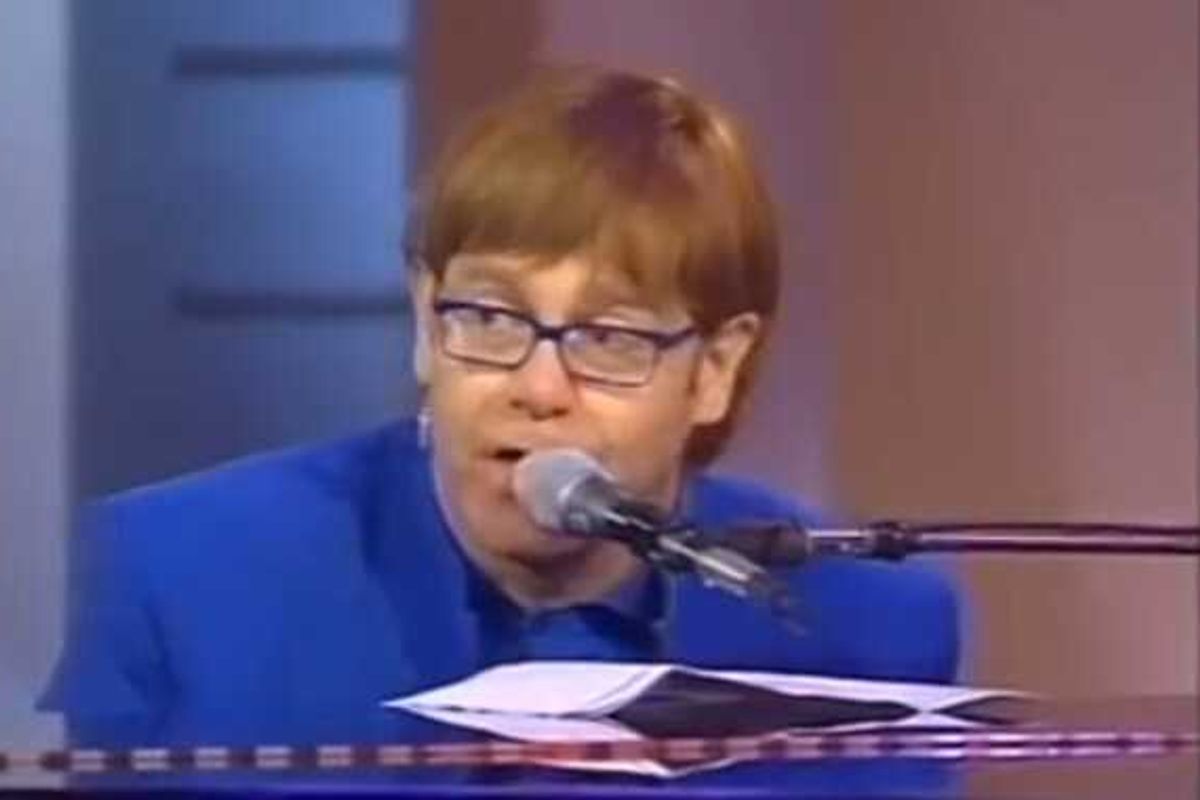Elton John was challenged to write a song on the spot using only an oven manual. It was great.
It's hilarious and catchy at the same time.
Elton John improvising a song.
Sir Elton John and Bernie Taupin are one of the most incredible songwriting partnerships in the history of pop music. But their working relationship seems different from that of The Beatles' John Lennon and Paul McCartney, who wrote a lot of their early hits face-to-face, holding guitars. Or, Billie Eilish and her brother, Finneas. Finneas lays down a basic musical idea, and the two collaborate on the lyrics, melody, and arrangement together until the song is done.
Taupin and John work quite differently. Taupin writes the lyrics separately and hands them to John, who may change or add a word or two, then sets them to music. “We don’t sit in the same room. I read the lyric. I write the song,” John succinctly explains.
Richard E. Grant challenges Elton John to write a song on the spot
Actor Richard E. Grant (Star Wars: The Rise of Skywalker, Bram Stoker’s Dracula) challenged John to see how quickly he could come up with a tune on a 1997 London Weekend Television performance, "An Audience with... Elton John." The event was a star-studded affair where celebrities such as Grant, the Spice Girls, David Copperfield, Beatles’ producer Sir George Martin, Ewan McGregor, Robbie Williams, Claudia Schiffer, and Ozzy Osbourne listened to John perform and asked questions.
To make things even more challenging, Grant gave him incredibly difficult material to work with: the manual to his oven. "I hear that you write your songs very, very quickly. I brought some words along and hope that you can put some music to them. Would you do that?" Grant asked.
- YouTube youtu.be
The song starts a bit maudlin until he peps things up, turning the song into a honkey tonk boogie, and then he finishes the song off with a bawdy finale, singing “So let's begin at the new beginning with your new bloody oven!"
Elton John had a big comeback in the ‘90s
The rest of the show included performances of "Don't Go Breaking My Heart" with The Spice Girls, "Saturday Night's Alright for Fighting," "Can You Feel the Love Tonight?" and "Your Song." The event feels like a celebration of John’s resurgent career after drug and alcohol problems and burnout from touring led to a decline in the late ‘80s. But John came back strong in the ‘90s with the massively popular soundtrack to The Lion King, featuring “Circle of Life” and “Can You Feel the Love Tonight.”
In 1997, John recorded the biggest-selling UK single of all time, “Candle in the Wind 1997,” which paid tribute to Princess Diana, who died in a car crash that year.
Michael Parkison challenged John to do it again four years later
In 2001, John faced a similar challenge from the legendary British talk-show host Michael Parkinson. He asked the “Goodbye Yellow Brick Road” singer to create a song out of some silly lyrics his team wrote about a flood. Once again, John came up with a banger on the spot. How lucky are we to live at the same time as Sir Elton John?
- YouTube www.youtube.com

